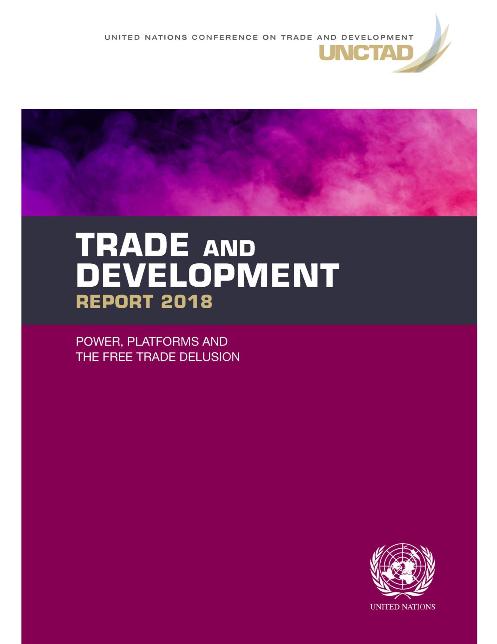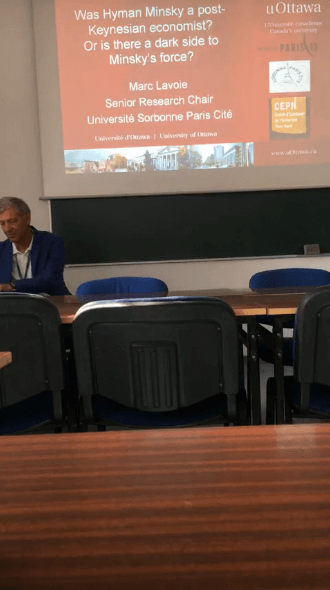UNCTAD Trade And Development Report 2018
The United Nations 🇺🇳 Conference On Trade And Development, UNCTAD publishes a detailed trade and development report every year and this year’s is titled: Power, Platforms and The Free Trade Delusion.
It stressed how free trade and globalisation has led to protectionism and that although the latter is not the solution, free trade isn’t the alternative either. The report details how free trade has led to rising power for a small number of corporations.
From the Overview:
Arguably the greatest damage of all has been dwindling trust in the system. Here economists have no excuses, at least if they have bothered to read Adam Smith. In any system claiming to play by rules, perceptions of rigging are guaranteed eventually to undermine its legitimacy. The sense that those who caused the crisis not only got away with it but profited from it has been a lingering source of discontent since 2008; and that distrust has now infected the political institutions that tie citizens, communities and countries together, at the national, regional and international levels.
The paradox of twenty-first century globalization is that – despite an endless stream of talk about its flexibility, efficiency and competitiveness – advanced and developing economies are becoming increasingly brittle, sluggish and fractured. As inequality continues to rise and indebtedness mounts, with financial chicanery back in the economic driving seat and political systems drained of trust, what could possibly go wrong?

